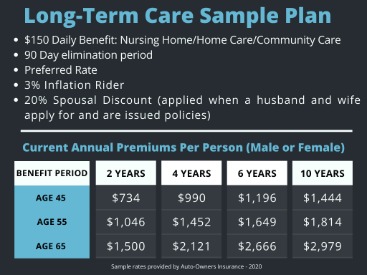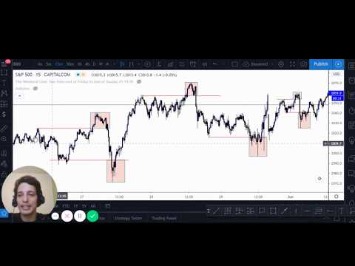Authorized Shares Overview, How They Work, Types
The par value of the issued share capital cannot exceed the value of the authorized share capital. The number of authorized shares can be increased by the shareholders in the annual shareholder meeting. Then, the company needs to revise the article of incorporation which is registered with the government. Increasing authorized shares means that the current shareholders will lose their value. It simply means current shareholders will share the company with new shareholders while the company’s value remains the same. The term ‘authorised share capital’ refers to a company’s capital in the broadest terms possible.
Faraday Future Announces Reverse Stock Split and Authorized … – Business Wire
Faraday Future Announces Reverse Stock Split and Authorized ….
Posted: Fri, 25 Aug 2023 07:00:00 GMT [source]
Shareholders may approve the issuance of additional authorized capital at any time. The most capital that a corporation may raise through the issuance of stock is referred to as the authorized capital. This maximum capital amount is registered with the registrar of the corporation and addressed in the articles of incorporation. The articles of incorporation or the memorandum of association dictate exactly how much authorized shares of capital the corporation may have. The number of authorized shares is disclosed in a company’s financial statements, along with the number of outstanding shares. Authorized stock is also known as authorized shares or authorized capital stock.
Authorized Share Capital – Definition With Examples
This appears to be foolish, given the corporation is foregoing Rs 6,82,42,995 in investment, but when you consider the economic stages, it stands to reason. The authorised share capital of a company is only reported on the balance sheet for information purposes. The issued and paid-up share capital, however, is accounted for on the company’s balance sheet and is considered in its totalling. If a company is forced to declare bankruptcy or liquidate its assets, preferred stock owners receive their share of company assets before common stockholders. Additionally, no dividends may be paid to common stockholders until all preferred stockholders have received their agreed-upon dividend. Common stock is what most people think of when they talk about the stock market.

Although share capital refers to a dollar amount, it is dictated by the number and selling price of a company’s shares. For example, if a company issues 1,000 shares for $25 per share, it generates $25,000 in share capital. Enterprises use authorized shares when they go public by offering a company’s equity, for instance, through an initial public offering (IPO).
Authorized Share Capital
Preferred shares (also known as preferred stock or preference shares) are a type of security that is similar to common shares. The main difference is that preferred shares have a priority claim over the common shares on a company’s assets and earnings. Common shares are one of the types of securities that represent variance analysis definition equity ownership in a corporation. Other terms, such as common stock, ordinary share, or voting share, all refer to common shares. The number of authorized shares can be increased by the shareholders of the company at annual shareholder meetings, provided a majority of the current shareholders vote for the change.
You can efile income tax return on your income from salary, house property, capital gains, business & profession and income from other sources. Further you can also file TDS returns, generate Form-16, use our Tax Calculator software, claim HRA, check refund status and generate rent receipts for Income Tax Filing. There are different terms that describe the different types of capital that a company has. Restricted shares are shares granted to mainly corporate officers, directors, and other senior executives. A share buyback usually increases the value of the remaining shares on the market by lowering the true supply.
In order to leave a margin for future requirements, the company will record a sum that is greater than their present requirement for finance. Authorized share capital is the absolute amount in which the corporation may raise capital from the stockholders and they may not go beyond this limit. Consequently, the corporation will register an amount that exceeds their current need for financing in order to leave a cushion for future demand.
The total number of a company’s outstanding shares as seen in the balance sheet is the sum of float and restricted shares. If outstanding shares are less than authorized shares, the difference (unissued stock) is what the company retains in its treasury. A company that issues all of its authorized stock will have its outstanding shares equal to authorized shares. Outstanding shares can never exceed the authorized number, since the authorized shares total is the maximum number of shares that a company can issue. Issued share capital is the total value of the shares a company elects to sell.
What are Restricted Shares?
Nevertheless, it is not technically included in share capital or capped by authorized capital limits. This does not limit the number of shares a company may issue but it puts a ceiling on the total amount of money that can be raised by the sale of those shares. For example, if a company obtains authorization to raise $5 million and its stock has a par value of $1, it may issue and sell up to 5 million shares of stock. A company may opt to have more than one public offering after its initial public offering (IPO). The proceeds of those later sales would increase the share capital on its balance sheet.

Authorized shares should not be confused with outstanding shares, which are the number of shares the corporation has actually issued that are held by the public. Paid-up capital is the amount of money a company has been paid from shareholders in exchange for shares of its stock. Paid-up capital is created when a company sells its shares on the primary market, directly to investors. A company that is fully paid-up has sold all available shares and thus cannot increase its capital unless it borrows money by taking on debt. In other words, the authorized share capital represents the upward bound on possible paid-up capital.
The maximum number is established in a company’s legal formation documents, known as the articles of incorporation. Interestingly enough, mature companies often see their shares outstanding shrink in comparison to authorized share capital. When a company is established and no longer growing aggressively, then the best return for extra capital is frequently buying back shares outstanding. Authorized share capital refers to the number of shares a company can issue, but you also may hear about other types of capital.
Issued Share vs. Subscribed Share Capital: What’s the Difference?
However, the actual issued capital of the company is only 100,000 shares, leaving 900,000 in the company’s treasury available for future issuance. This sounds shortsighted, as the company is forgoing $900,000 in capital, but it makes sense when you look at the business phases. Authorized share capital is the number of stock units (shares) that a company can issue as stated in its memorandum of association or its articles of incorporation. Authorized share capital is often not fully used by management in order to leave room for future issuance of additional stock in case the company needs to raise capital quickly. Another reason to keep shares in the company treasury is to retain a controlling interest in the business. You might find that, as with the case of Microsoft, the company’s outstanding shares represent only a small portion of its authorized shares.
- Breach of this limit breaks compliance with securities laws, and regulatory agencies will often consider the excessive issuance of improperly authorized shares as void.
- However, the Companies Amendment Act, 2015 have omitted the provision of minimum paid-up capital requirement for the Companies but the requirement of authorised share capital still exists.
- The number of authorized shares is specified in the company’s articles of incorporation.
- You might find that, as with the case of Microsoft, the company’s outstanding shares represent only a small portion of its authorized shares.
- This money is paid while they own the stock, in addition to the proceeds they receive when they sell it.
These reserve shares may not issue the shares unless under the stock option plan. Companies may also intentionally hold back authorized shares as a defensive maneuver. By retaining authorized shares, the company can maintain a controlling interest.
During initial registration, the company files a formal document (an article of incorporation) with the government to form the corporation. This document contains the maximum number of share which the corporate can issue to the shareholders. Companies that issue ownership shares in exchange for capital are called joint stock companies. Yes, a company can change the number of authorized shares it is allowed to issue.
What are Common Shares?
This shareholder approval is important because a company issuing more shares will ultimately dilute the ownership of its current investors. Authorized share capital definition refers to the number of shares that a corporation may issue as stated in its articles of incorporation. The variance between the authorized shares and issued shares allows for future issuances, in case the corporation wishes to raise additional capital quickly.
- This sounds shortsighted, as the company is forgoing $900,000 in capital, but it makes sense when you look at the business phases.
- The number of authorized shares can be changed by way of a vote from shareholders, typically during the annual shareholder meeting.
- A company’s outstanding shares refers to the number of shares that are currently owned.
- Authorized share capital is the maximum amount of share capital a company is allowed to raise.
- Authorized capital stock is the maximum number of shares that a corporation is legally allowed to issue.
When a company is formed, it decides on the maximum number of shares it would like to offer. The shares that are issued to the public to trade on the open markets comprise all or a portion of a company’s authorized stock. In addition, restricted shares, which are reserved for employee compensation and incentives, are also part of authorized shares.
Authorized Share Capital is the maximum amount of share capital that a company is authorized to raise. This limit is outlined in its constitutional documents and can only be changed with the approval of the shareholders. Before a publicly traded company can sell stock, it must specify a specific limit to the amount of share capital that it is authorized to raise. The share capital is the part of a company’s equity that it has raised from issuing common or preferred shares and is different from other types of equity accounts.
